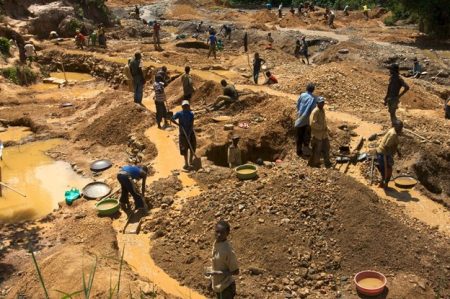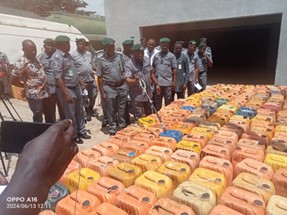
Cape Town, South Africa — Nigerian oil and gas company UTM Offshore is advancing to the Engineering, Procurement, Construction, Installation and Commissioning phase of its FLNG project in Nigeria. The project – the first FLNG facility to be developed by a local player – has a planned capacity of 1.5 million tons per annum as well as 176 million cubic feet of natural gas and condensate and 300,000 tons of LPG. With a mission to become a leading global provider of FLNG solutions, UTM Offshore is setting the pace in offshore gas monetization in West Africa.
UTM Offshore CEO Julius Rone has joined the African Energy Week (AEW): Invest in African Energy conference – taking place November 4-8 in Cape Town – as a speaker. During the event, Rone will unpack the role FLNG plays in enhancing fuel security, strengthening revenue generation while facilitating a transition to a clean, gas-based energy future in Africa.
AEW: Invest in African Energy is the platform of choice for project operators, financiers, technology providers and government, and has emerged as the official place to sign deals in African energy. Visit http://www.AECWeek.com for more information about this exciting event.
UTM Offshore plans to make FID on its Nigerian FLNG facility in 2024. The company signed a Heads of Agreement with Nigeria’s state-owned Nigerian National Petroleum Company (NNPC) in 2023, laying out the terms of the NNPC’s 20% equity contribution to the project. Set to be complete by 2026, the FLNG facility features an integrated model that prioritizes both exports and the domestic utilization of gas resources. In addition to equity terms, the NNPC agreement outlines a pathway for ensuring LPG is produced for the domestic market. As such, the project is expected to enhance domestic fuel security while reducing the reliance on wood-fired fuel solutions.
In addition to energy supplies, the UTM Offshore-FLNG project serves as an important infrastructure solution that aligns with the country’s energy transition goals. The project aims to monetize currently-flared gas resources from the offshore Yoho Field, producing LNG, LPG and condensate. As such, the facility not only unlocks a new energy source through the monetization of flared gas but reduces the Yoho Field’s greenhouse gas emissions in line with environmental targets. Meanwhile, the FLNG project goes beyond energy and environmental benefits to create tangible opportunities for local business and communities. The project is estimated to provide up to 3,000 direct employment opportunities and 4,000 indirect employment opportunities while LPG supplies are anticipated to reduce the cost of cooking gas in the country.
Beyond the FLNG project, UTM Offshore specializes in the sale and purchase of Nigerian crude oil; marine logistics and support services; product pipeline services; and dredging services. Key projects spearheaded by UTM Offshore include the construction of a floating barrier in Lagos, Nigeria to improve security and marine logistics; the dredging of engineering and drilling company Saipem’s third jetty in the Port Harcourt Base; security patrol services to major IOCs in Nigeria, and more.
“With the largest natural gas resources in Africa, Nigeria stands to rapidly enhance its production and export capacity through the utilization of FLNG solutions. Leading the charge in this industry is UTM Offshore, a Nigerian oil and gas company that is setting a strong benchmark for its regional counterparts. UTM Offshore’s FLNG facility in Nigeria will not only be the first developed by an indigenous company but will accelerate the country’s energy transition through the monetization of offshore gas,” stated NJ Ayuk, Executive Chairman of the African Energy Chamber.
During the AEW: Invest in African Energy conference, Rone will provide a project update on the planned FLNG facility, detailing the role floating liquefaction plays in Africa and the project’s impact on the Nigerian energy industry. In addition to his participation in panel discussions, Rone’s engagement with global and regional stakeholders will open new pathways for collaboration across the gas industry.



